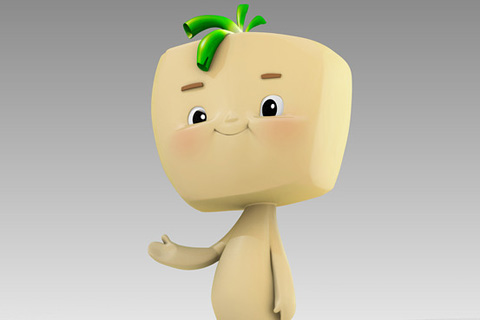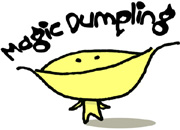
As reported by Jonathan Landreth in The Wall Street Journal…
The world’s second-largest economy has never produced its own version of Pokémon or Buzz Lightyear. Could the solution be a bean-curd-based riff on Pinocchio?
Cue “Tofu Boy,” a $5 million film slated for fall 2014 release, whose makers hope the character whets the world’s appetite for Chinese animation.
“We’re creating Chinese-themed content with international resonance,” says Kevin Geiger, a Walt Disney Animation veteran who now heads a Beijing-based start-up studio, Magic Dumpling Entertainment. “Tofu Boy” is “inspired by but not based on” the Pinocchio story, he says. “A good little boy who’s a bit mischievous is something every parent in the world can relate to.”
He and his partners, director Sun Lijun, scriptwriter Yan Yi and chief creative officer Feng Wen, began work on “Tofu Boy” in 2009 and now share digital sketches on their iPads with coffee-shop patrons, solicit plot feedback from neighborhood kids, and grill distributors who claim to know local moviegoers best.
“We’re trying to give Chinese audiences a sense of ownership,” Mr. Geiger says. “They’re so tired of period pieces, but people are reluctant to do something modern because it sometimes bumps up against the censors. It’s safer to do something set in the past. But Pixar tells movies about now. ‘Toy Story’ is set today.‘Wall-E’ is set in the future. Why can’t Chinese animation be the same? If we can create content that Chinese feel they own, but that also has an international-quality story and design, then it can do well overseas.”
First it must resonate with Chinese audiences. Mr. Sun, the head of the animation department at the Beijing Film Academy and director of the animated movie “Legend of a Rabbit,” helped play up Tofu Boy’s culturally Chinese aspects. “His notes always incorporate something traditional,” Mr. Yan says.
Tofu Boy comes to life in modern-day Shanghai, in a once-famous but now bedraggled shop where tofu maker Old Wang wonders aloud if having a son would change his life. As for his powers, the animators take advantage of his soy-based nature by giving him the ability to change shape and texture—Mr. Sun told the animators to make him “all consistencies,” Mr. Geiger says. He hardens to pound a nail and transforms into stinky tofu when upset.
There are also occasional nods to more Western sensibilities. One character, regarding Old Wang, says “There are born winners and born losers, and that’s an example of a born loser,” but is countered by another who says, “There’s not only fate and destiny, there’s hope.”
“Kung Fu Panda” was a hit in China because, Ms. Feng says, “in the end, it was about needing to find your own way—not a part of Chinese culture, but a philosophy young Chinese fantasize about.”
This mix of local and potentially global appeal is crucial to the success of “Tofu Boy” and other animation projects in development in China. The country is eager to promote its culture abroad. According to the State Administration of Radio, Film and Television, China’s 2011 box-office revenue was up 29% from a year earlier, to 13.1 billion yuan ($2.1 billion) though U.S. Hollywood productions still draw the most moviegoers. Other animated series, such as “Pleasant Goat and Big Big Wolf,” are popular within China and other Asian markets but haven’t yet crossed over.
Magic Dumpling is hopeful but realistic. “Can we really draw more than 10 versions of a character and choose the best one?” Ms. Feng says. “Chinese artists are not used to even this simple process. We’re trying to build a good Chinese film step by step. We’re trying to take Chinese culture overseas. In reality, it will be a very slow process.”


You must be logged in to post a comment.